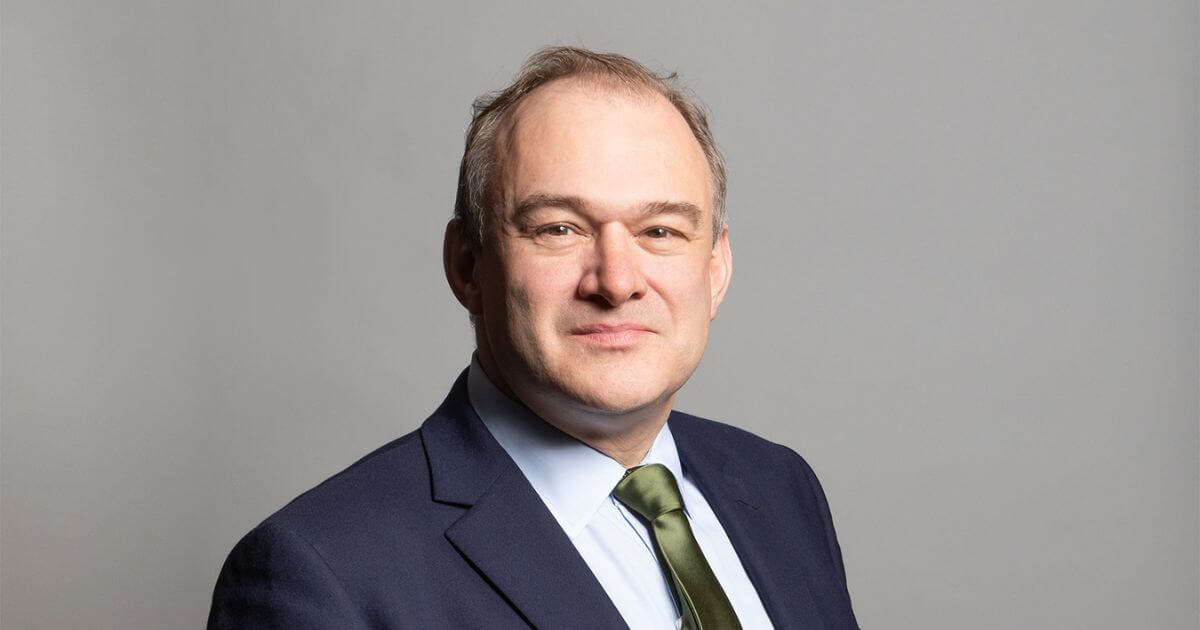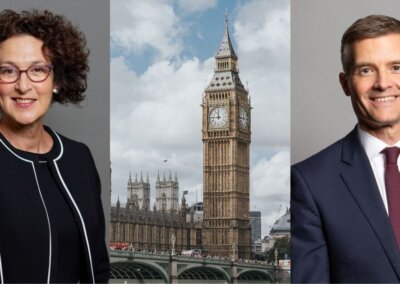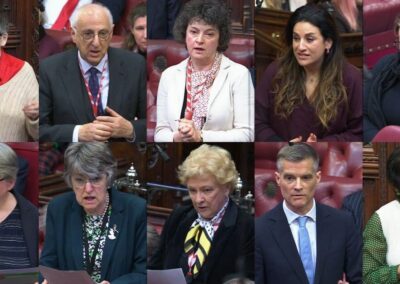The leader of the Liberal Democrats, Ed Davey, has said he is “very minded” to vote against the assisted suicide Bill set to be voted on at the end of the month.
When asked how he would vote on Kim Leadbeater’s assisted suicide Bill, Davey, who expressed his scepticism about making assisted suicide legal earlier this year, told reporters last week “I’m very minded to vote against it, because of the impact on the psychology, if you like, of elderly people and some disabled people. And it’s a difficult one for proponents of this Bill to deal with”.
He also said “I genuinely worry that people could feel burdens on their loved ones and their families”.
While MPs will be given a free vote on the matter, the Telegraph reports that as party leader, the Kingston and Surbiton MP’s voice is likely to hold sway with his 72 MPs.
Davey also discussed his experience as a carer for his mother who died of cancer.
He explained that his “mother had a very painful form of cancer, and I used to administer morphine to her, and I was by her bedside when she died, and I can tell you that I don’t think she would have wanted anything different”.
“The big thing I take from that is palliative care. We have got to do so much better on palliative care. The ability for us to do so much better is huge”.
“I think many of the people who worry about this would have their worries reassured. I think it’d be a quite strong consensus to not proceed down this road”.
Health Secretary to vote against assisted suicide
Davey’s apparent intention to vote against the assisted suicide Bill comes barely a week after the Health Secretary, Wes Streeting, told journalists that he would be voting against the Bill.
According to The Times, Streeting told backbenchers that end-of-life care is not good enough for people to make a “genuine choice” about assisted suicide.
The Health Secretary was asked whether the palliative care system was ready for a change in the law on assisted suicide.
An unnamed Labour MP said “Wes said that palliative care isn’t good enough, then added he hadn’t intended to get into the discussion about assisted dying, but told us his view”.
“He told us he wants to get to a point where people have a real choice at the end of life. At the moment, he said he doesn’t think it’s a genuine choice because palliative care is so bad. He did explicitly say he’d be voting against the assisted dying bill. He said he voted for it last time but he’s changed his mind”.
Another MP said that the Health Secretary had been “explicit” that he would vote against Leadbeater’s assisted suicide Bill, saying that the emphasis should be on palliative care.
Streeting’s intervention is reported to have weighed heavily on some MPs. A ministerial aide said “There are MPs who have doubts but are on the fence, and this would have reinforced those doubts. The justification is nothing he didn’t say in public, but this is the health secretary, you’ve got to take it seriously”.
One Labour MP who was in the room and who does not support the assisted suicide Bill said “I think the concern quite a few MPs have, including the one who asked the question [of Wes Streeting], is that palliative and end-of-life care is in such a poor state that that’s a reason people are unable to die with dignity in many cases. So sort that out first, then come back to this later”.
The introduction of the Leadbeater assisted suicide Bill comes as many elderly people go into winter with their Winter Fuel Payment cut by the Government, as palliative care services are in crisis with 100,000 people dying each year needing palliative care but not receiving it, and a wider healthcare system also in a state of crisis.
Spokesperson for Right To Life UK, Catherine Robinson, said “Ed Davey is the latest high-profile MP to join the ranks of those who have indicated they will be voting against the legislation. His comments indicate his recognition of the fact that some vulnerable people will be made to feel a burden and may choose to end their lives by assisted suicide against their true wishes. With our healthcare system in such a dire state, the risk of people feeling pressured to end their lives when they do not wish to is all the more acute”.












